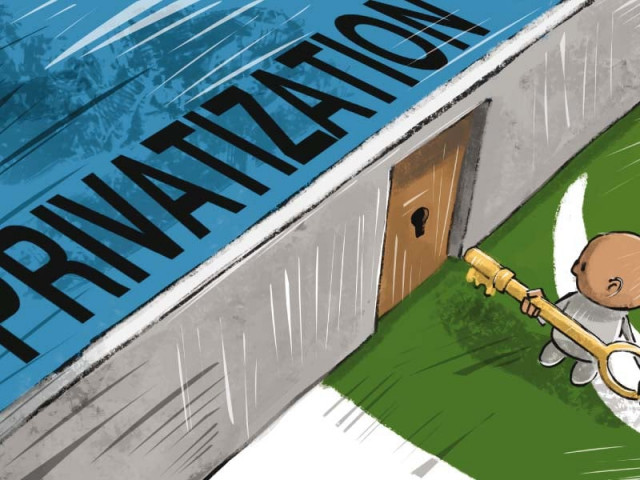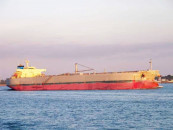Change of guard: Kick-starting the privatisation process
Privatisation will raise money for the government; encourage increased participation by the public in capital markets.

On February 9, Pakistan Petroleum Limited (PPL) announced a tentative timeline for a Secondary Public Offering (SPO) of its shares to the general public worth on the Karachi Stock Exchange. This is a welcome step since it will help kick-start the stalled privatisation process, as well as reignite interest in the capital markets of Pakistan. Though the sale will not really help the state in managing its fiscal requirements by a considerable degree, the SPO is bound to be a litmus test for our capital markets.
Just to recall, the government initially sold 102.875 million shares of PPL in July 2004 at Rs55 per share. Hypothetically, if someone bought 500 shares then, for a total of Rs27,500, the amount of cash dividends received from the company would have yielded Rs52,167 till date; while the 500 shares, after bonus share dividends, would have increased to 958. With current prices above Rs170, the worth of those shares would be nearly Rs165,000 today. Those who did buy PPL shares then, and held on to them till now, must be very happy people.
Other offerings – like Oil and Gas Development Company Limited (OGDCL), National Bank of Pakistan, Kot Addu Power Company, United Bank Limited, HBL, Pakistan International Airlines, Sui Southern Gas Company etc – will not only allow state owned enterprises to be shared with the general public, thereby generating funds for the state, they will also allow the participation of a large number of people in the capital markets of the country. More than a million individual account holders exist in the Central Depository Company of Pakistan, up from below 0.1 million at the time of the 2003 offering of OGDCL. This clearly demonstrates the rise in involvement of the general public in capital markets transactions.
Another positive aspect of public offerings in the last decade was that it attracted Foreign Direct Investment (FDI) into Pakistan. Foreign investors saw value in our country as it was demonstrating strong GDP growth because of the continuation of policies implemented by the previous political leadership. In a majority of privatisation transactions, a public offering on the stock exchanges was followed by transfer of management; this allowed for positive image-building of the country.
It is Pakistan’s misfortune that the privatisation programme was stalled for over six years. The privatisation of Pakistan Steel Mills was rescinded by the Supreme Court of Pakistan in 2006. Amongst the reasons cited for rescinding were massive irregularities, lack of scrutiny of the buyer’s consortium and the business plan of the buyers. $362 million received through the deal were returned and, since then, the state has had to inject funds worth billions into the entity. While the incumbent government is lambasted on a regular basis for the ‘mismanagement’ of state-owned enterprises – where the Steel Mills are referred to as a case in point – not many question the difference its privatisation would have made.
Agreed, the benefits of privatisation are not equal – a case in point being the Karachi Electric Supply Company – but it should be realised that it is the eventual management of an institution which delivers returns for its owners; not the other way round.
Pakistan needs to attract investments on an expeditious basis. Expecting FDI to flow through quickly to create capacity is a remote possibility, mainly because of perceived political instability in the country and our negative image the world over. A cautious and partial privatisation of state-owned enterprises and the upcoming offering of 2.5% shares of PPL will set the tone for the future. Let us hope that our trigger-happy judiciary learns from its mistakes, and refrains this time around from entertaining petitions which may take us many steps backwards.
A UAE based investment banker who can be contacted at ali.wahab@tribune.com.pk
Published in The Express Tribune, March 19th, 2012.



















COMMENTS
Comments are moderated and generally will be posted if they are on-topic and not abusive.
For more information, please see our Comments FAQ